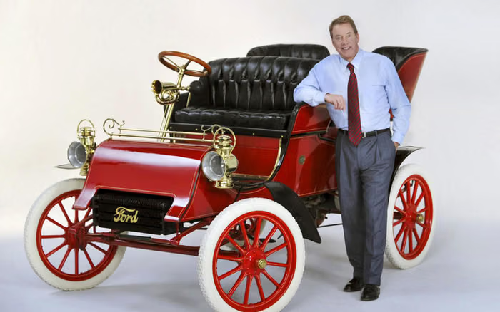Long before they became global empires of speed, luxury, and mass production, the world’s most recognizable car manufacturers had humble, often eccentric, beginnings. From three-wheeled ‘motor wagons’ to experimental quadricycles, these pioneering vehicles are the true ancestors of every car on the road today.
1. Mercedes-Benz: The Birth of the Automobile
- The First Car: Benz Patent-Motorwagen (1886)
- Significance: Widely regarded as the world’s first practical automobile—a vehicle designed to be propelled by an internal combustion engine. Patented by Karl Benz in January 1886, this revolutionary three-wheeled vehicle had a single-cylinder, four-stroke engine producing just horsepower. Its first long-distance journey, famously undertaken by Benz’s wife, Bertha, in 1888, proved its practicality to a skeptical public. The company later merged with that of Gottlieb Daimler (inventor of the high-speed liquid petroleum-fueled engine) to form Daimler-Benz.
2. Ford: The Seed of Mass Production
- The First Car (Henry Ford’s design): Ford Quadricycle (1896)
- Significance: While the Ford Motor Company was officially founded in 1903, Henry Ford’s first experimental vehicle was the Quadricycle, built in his workshop in 1896. This four-wheeled “horseless carriage” was essentially a light metal frame powered by a 4-horsepower two-cylinder engine. The official first production car of the Ford Motor Company was the Model A (1903-1904), which set the stage for the revolutionary mass-production techniques that would be perfected with the legendary Model T.
3. Toyota: A Departure from Looms
- The First Car: Toyota Model AA (1936)
- Significance: The automotive division of Toyoda Automatic Loom Works, Ltd. (founded by Sakichi Toyoda) produced its first passenger car, the Model AA, in 1936. The sedan drew heavily on American designs of the time, featuring a streamlined body and a six-cylinder engine. This model marked the pivot of the Toyoda family business from textile machinery to automobiles, eventually becoming the global powerhouse known as Toyota.
4. BMW: From Aircraft to Autos
- The First Car: BMW Dixi 3/15 PS (1929)
- Significance: Though BMW’s roots lie in aircraft engine manufacturing beginning in the early 20th century, their first mass-produced car was the Dixi 3/15 PS in 1929. The car was a licensed version of the British Austin 7, a small, affordable four-seater. BMW acquired the Fahrzeugfabrik Eisenach (the company producing the Dixi) and re-branded the car as the BMW 3/15 PS, officially marking their entry into the automotive market.
5. Peugeot: From Coffee Mills to Cars
- The First Car: Peugeot Type 3 (1891)
- Significance: Peugeot is one of the world’s oldest surviving car manufacturers, tracing its history back to the production of salt mills and bicycles. Their first commercially sold car was the Type 3, a four-wheeled vehicle with a rear-mounted Daimler V-twin engine. This model not only began a continuous line of car production for Peugeot but also became famous for being the first car ever driven in Italy in 1893.







